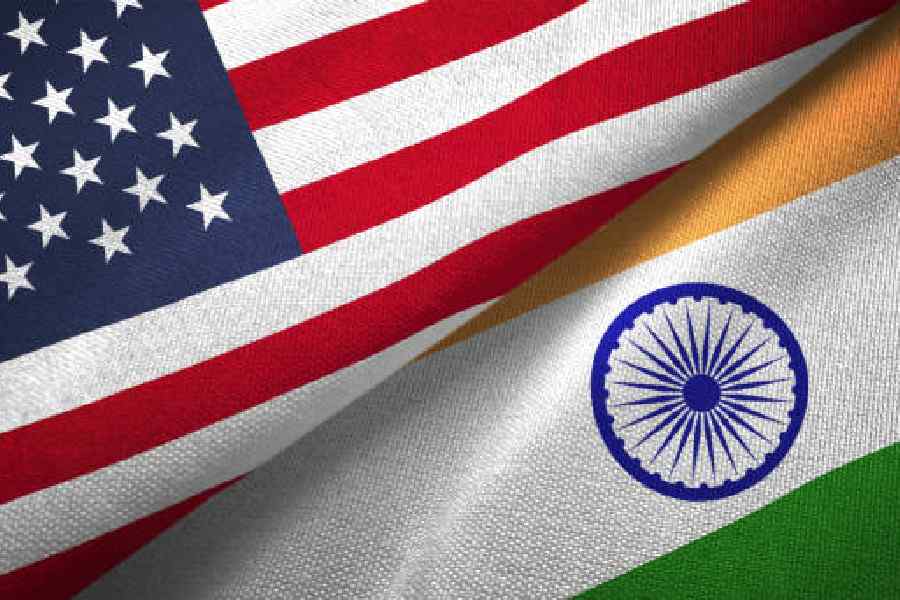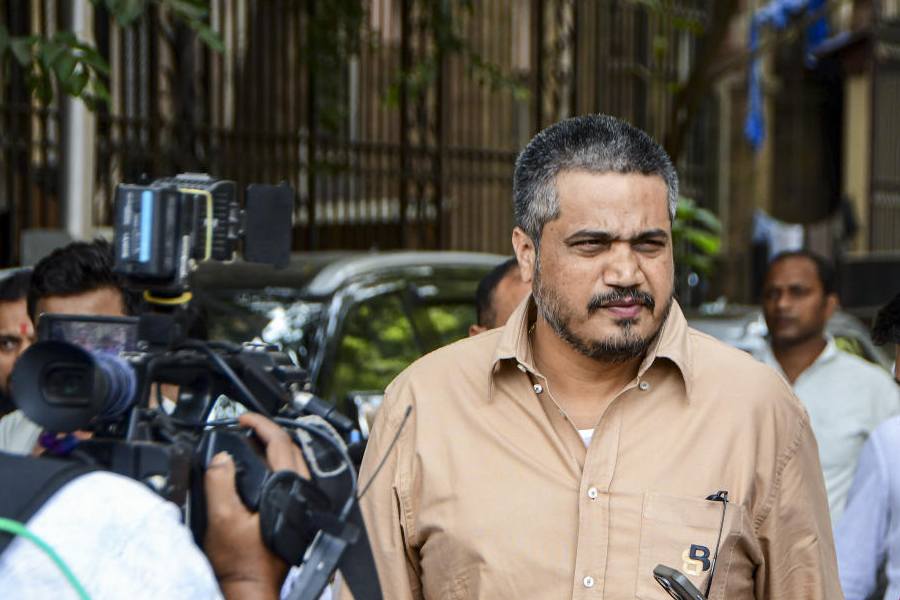The Washington Post alleges that plans for a hired hit team to assassinate a top US-based Sikh separatist was approved by the Indian spy agency’s then chief, Samant Goel. The newspaper also has revealed the alleged identity of a RAW officer who relayed location details about the target, Gurpatwant Singh Pannun, to the hit team.
The assassination, ultimately thwarted by US security agents, is a “priority now,” wrote R&AW officer Vikram Yadav, according to The Post. The newspaper attributed its report to US and Indian current and former security officials as well as a US indictment and said that the Indian government had forwarded details about Pannun, including his New York address, to the would-be assassins. As soon as the assassins could confirm that Pannun, a US citizen, was home, “it will be a go ahead from us,” the newspaper quoted Yadav as saying.
US spy agencies have “more tentatively assessed” that Modi’s national security adviser, Ajit Doval, was probably aware of R&AW’s plans to kill Sikh activists, but officials emphasised that no smoking gun proof has emerged, the newspaper said. Neither Doval nor Goel responded to the newspaper’s calls and text messages seeking comment.
India’s Ministry of External Affairs declined to respond to detailed questions submitted by The Post. Responding to questions raised by a Post reporter at a news briefing last week, spokesman Randhir Jaiswal said that India was still investigating the allegations and that the Pannun case “equally impacts our national security.” Jaiswal referred reporters to previous ministry statements that targeted killings are “not our policy.”
The newspaper says that Yadav’s alleged identity and affiliation provide “the most explicit evidence to date that the assassination plan” was directed from within the Indian spy service. Higher-ranking R&AW officials have also been implicated, according to current and former Western security officials, as part of a sprawling investigation by the CIA, FBI and other agencies that has mapped potential links to Modi’s inner circle.
As R&AW chief at the time, Goel was “under pressure” to neutralise the alleged threat posed by Sikh extremists overseas, the newspaper quoted an unnamed former Indian security official as saying. Goel reported to Doval, and had ties to the hard-line national security adviser going back decades.
The newspaper said India is not alone in seeking to suppress political enemies. It claimed that India’s assassination plots in the United States and Canada are “part of an expanding wave of aggression against dissident groups seeking protection in other countries” by countries such as China, Russia, Iran, Saudi Arabia and other regimes that it is investigating.
India has faced few consequences for its use of violence and intimidation against dissident groups, in part because the US and its allies want closer ties with India in a new era of competition with China, the newspaper said.
At the same time as Indian agents were allegedly firming up plans last year to assassinate Pannun, US President Joe Biden was hosting an elaborate welcome on June 22 for Modi at the White House. A chef was flown in from California to preside over a vegetarian menu while Biden extolled the shared values of a relationship “built on mutual trust, candor and respect.”
The foiled assassination was part of an escalating campaign of aggression by R&AW against the Indian diaspora in Asia, Europe and North America, unnamed officials quoted by the newspaper said. The US plot coincided with the June 18 shooting death of vocal Sikh independence advocate Hardeep Singh Nijjar near Vancouver — an operation also linked to Yadav, according to Western officials.
Both plots took place amid a wave of violence in Pakistan, where at least 11 Sikh or Kashmiri separatists living in exile and labelled terrorists by the Indian government have been killed over the past two years, according to the newspaper.
The Indian intelligence service has ramped up its surveillance and harassment of Sikhs and other groups overseas perceived as disloyal to the Modi government, officials said. The Post also alleged that, “R&AW officers and agents have faced arrest, expulsion and reprimand in countries including Australia, Germany and Britain.
That India would pursue supposedly lethal operations in North America has stunned Western security officials, according to The Post. In some ways, however, it reflects a profound shift in geopolitics. After years of being treated as a second-tier player, the newspaper says: “India sees itself as a rising force in a new era of global competition, one that even the United States cannot afford to alienate.”
For the Biden administration, which has spent three years cultivating closer ties with India, the assassination plots have pitted professed values against strategic interests.
Last July, White House officials, including CIA Director William J Burns, began holding high-level meetings to discuss ways to respond without risking a wider rupture with India, officials said. But the United States has so far imposed no expulsions, sanctions or other penalties.
Even the US criminal case reflects this restraint. Senior officials at the Justice Department and FBI had pushed to prosecute Yadav, officials said, a step that would have implicated R&AW in a murder-for-hire conspiracy. But while a U.S. indictment unsealed in November contained the bombshell allegation that the plot was directed by an Indian official, it referred to Yadav as only an unnamed co-conspirator, “CC-1,” and made no mention of the Indian spy agency.
Justice Department officials who took part in the White House deliberations sided against those urging criminal charges against Yadav, the newspaper said. Administration officials denied any undue influence. “Charging decisions are the prerogative of law enforcement alone,” said National Security Council spokesperson Adrienne Watson, “and the Biden NSC has rigorously respected that independence.”
The only US charges made public to date are against an alleged middleman, Nikhil Gupta, who is described in the indictment as an Indian drug and weapons trafficker enlisted to hire a contract killer. Gupta, an Indian national who has denied the charges, was arrested in Prague on June 30 and remains in prison. He is awaiting a Czech court ruling on a US request for his extradition.
Even in recent days, the Biden administration has taken steps to contain the fallout from the assassination plot, according to the newspaper. White House officials warned the Modi government this month that The Post was close to publishing an investigation that would reveal new details about the case. It did so without notifying The Washington Post, the newspaper said.
For Modi, the newspaper says the assassination allegations appear to have only bolstered his political standing with him set to clinch a third term in the ongoing national elections.
The story was written by Gerry Shih, the Post’s India Bureau Chief, national security correspondent Ellen Nakashima and investigative foreign correspondent Greg Miller.









